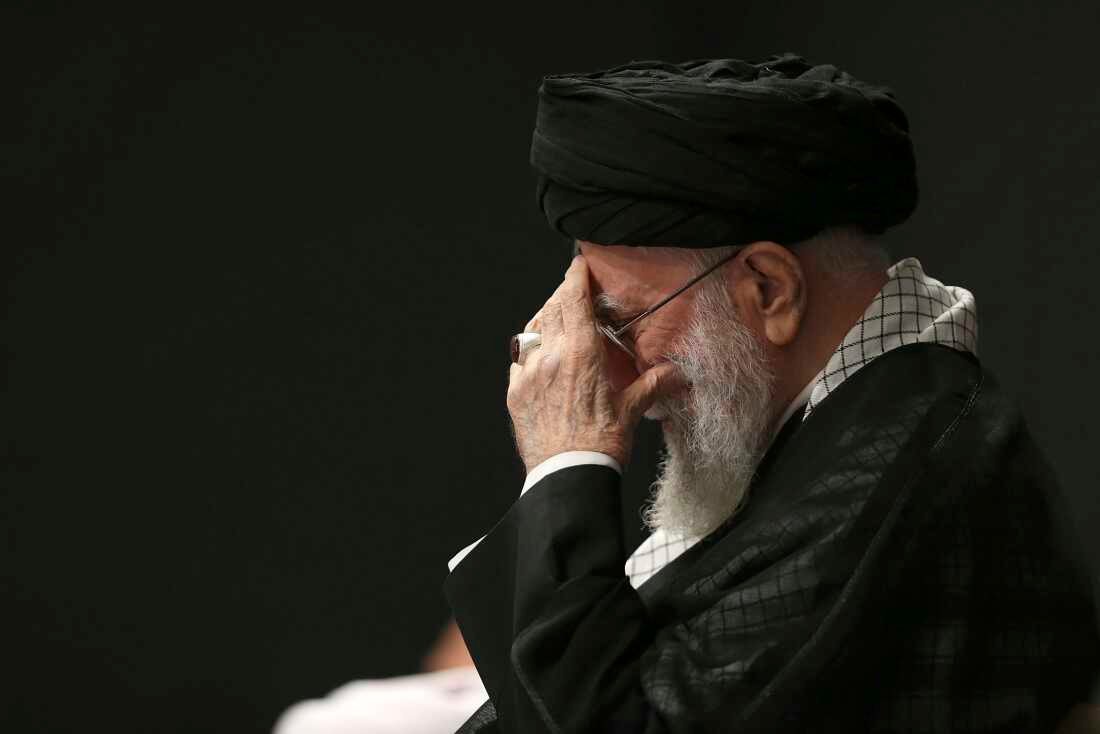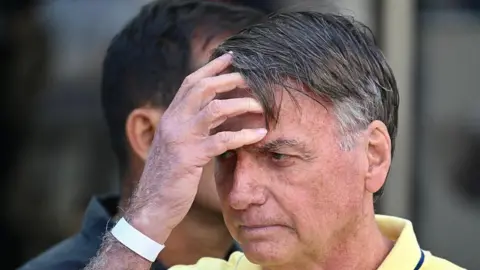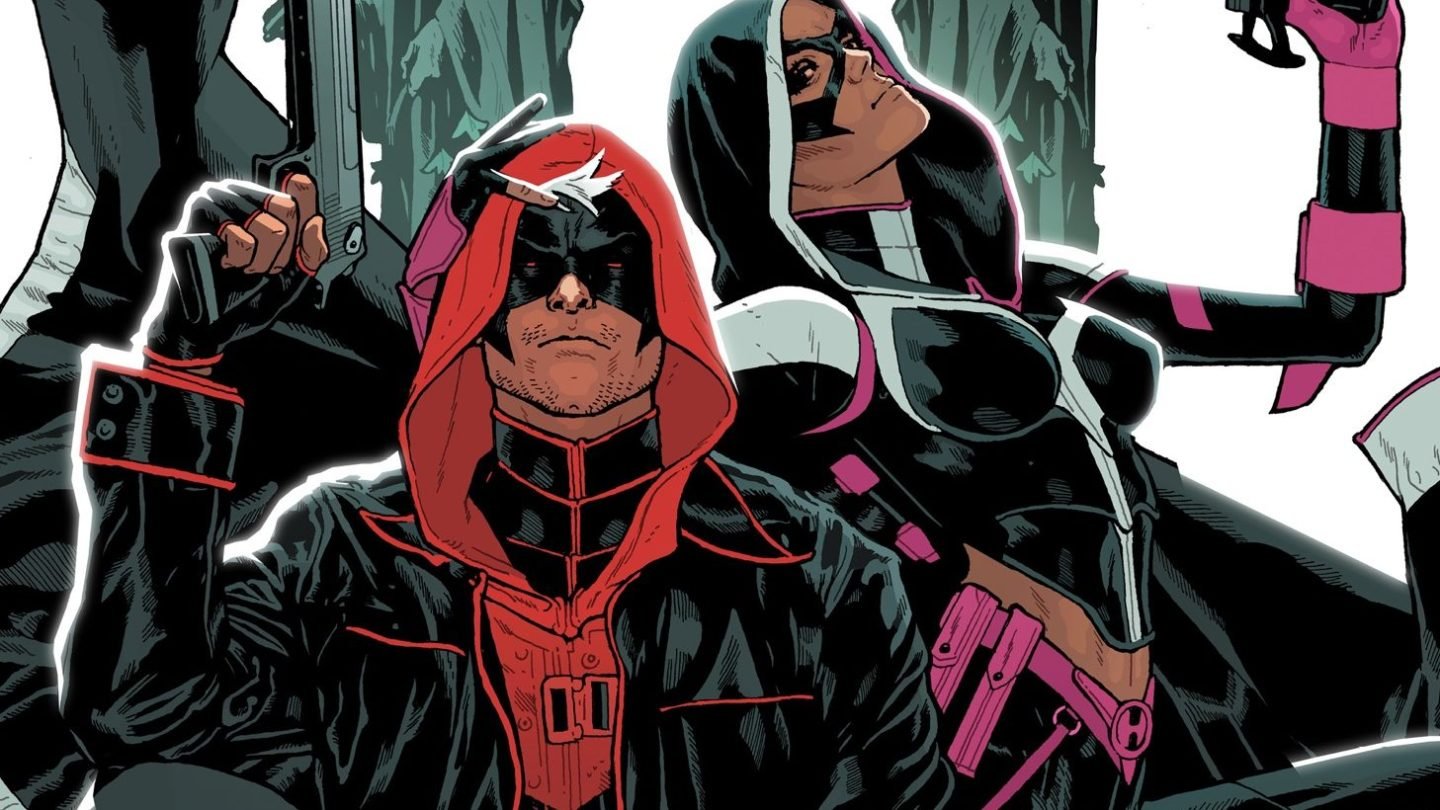Top Stories
Iran’s supreme leader makes first public appearance since war : NPR

Iranian Supreme Leader Ayatollah Ali Khamenei attends a mourning ceremony commemorating the death anniversary of the Prophet Muhammad’s grandson, in Tehran, Iran, on Saturday.
Office of the Iranian Supreme Leader/AP
hide caption
toggle caption
Office of the Iranian Supreme Leader/AP
Iran’ s Supreme Leader Ayatollah Ali Khamenei on Saturday made his first public appearance since the 12-day war between Israel and Iran began, attending a mourning ceremony on the eve of Ashoura.
Khamenei’s absence during the war suggested the Iranian leader, who has final say on all state matters, had been in seclusion in a bunker — something not acknowledged by state media. State TV in Iran showed him waving and nodding to the chanting crowd, which rose to its feet as he entered and sat at a mosque next to his office and residence in the capital, Tehran.
There was no immediate report on any public statement made. Iranian officials such as the parliament speaker were present. Such events are always held under heavy security.
After the U.S. inserted itself into the war by bombing three key nuclear sites in Iran, U.S. President Donald Trump sent warnings via social media to the 86-year-old Khamenei that the U.S. knew where he was but had no plans to kill him, “at least for now.”
On June 26, shortly after a ceasefire began, Khamenei made his first public statement in days, saying in a prerecorded statement that Tehran had delivered a “slap to America’s face” by striking a U.S. air base in Qatar, and warning against further attacks by the U.S. or Israel on Iran.
Trump replied, in remarks to reporters and on social media: “Look, you’re a man of great faith. A man who’s highly respected in his country. You have to tell the truth. You got beat to hell.”
Iran has acknowledged the deaths of more than 900 people in the war, as well as thousands of injured. It also has confirmed serious damage to its nuclear facilities, and has denied access to them for inspectors with the U.N. nuclear watchdog.
Iran’s president on Wednesday ordered the country to suspend its cooperation with the watchdog, the International Atomic Energy Agency, further limiting inspectors’ ability to track a program that had been enriching uranium to near weapons-grade levels. Israel launched the war fearing that Iran was trying to develop atomic weapons.
It remains unclear just how badly damaged the nuclear facilities are, whether any enriched uranium or centrifuges had been moved before the attacks, and whether Tehran still would be willing to continue negotiations with the United States over its nuclear program.
Iranian Shiite Muslims mourn in a ceremony as water is being sprayed for heat management, in Tehran, Iran, Friday, July 4, 2025, ahead of Ashoura, a remembrance of the 7th-century martyrdom of the Prophet Muhammad’s grandson.
Vahid Salemi/AP
hide caption
toggle caption
Vahid Salemi/AP
Israel also targeted defense systems, high-ranking military officials and atomic scientists. In retaliation, Iran fired more than 550 ballistic missiles at Israel, most of them intercepted, killing 28 people and causing damage in many areas.
Ceremony commemorates a death that caused rift in Islam
The ceremony that Khamenei hosted Saturday was a remembrance of the 7th century martyrdom of the Prophet Muhammad’s grandson, Hussein.
Shiites represent over 10% of the world’s 1.8 billion Muslims, and they view Hussein as the rightful successor to the Prophet Muhammad. Hussein’s death in battle at the hands of Sunnis at Karbala, south of Baghdad, created a rift in Islam and continues to play a key role in shaping Shiite identity.
In predominantly Shiite Iran, red flags represented Hussein’s blood and black funeral tents and clothes represented mourning. Processions of chest-beating and self-flagellating men demonstrated fervor. Some sprayed water over the mourners in the intense heat.
Reports of problems accessing the internet
NetBlocks, a global internet monitor, reported late Saturday on X that there was a “major disruption to internet connectivity” in Iran. It said the disruption corroborated widespread user reports of problems accessing the internet. The development comes just weeks after authorities shut down telecoms during the war. NetBlocks later said internet access had been restored after some two hours.
Top Stories
Jair Bolsonaro sentenced to 27 years in prison for plotting Brazil coup

Ione WellsSouth America correspondent in Brasília and
Vanessa BuschschlüterBBC News
 EVARISTO SA/AFP via Getty Images
EVARISTO SA/AFP via Getty ImagesThe former president of Brazil, Jair Bolsonaro, has been sentenced to 27 years and three months in prison after being found guilty of plotting a military coup.
A panel of five Supreme Court justices handed down the sentence just hours after they had convicted the former leader.
They ruled he was guilty of leading a conspiracy aimed at keeping him in power after he lost the 2022 election to his left-wing rival, Luiz Inácio Lula da Silva.
Four of the justices found him guilty while one voted to acquit him.
Bolsonaro, who is under house arrest, did not attend the trial but has in the past called it a “witch hunt”.
His words have previously been echoed by US President, Donald Trump, who imposed 50% tariffs on Brazilian goods, framing them as retaliation for Bolsonaro’s prosecution.
Reacting to the guilty verdict, Trump said he found it “very surprising” and compared it to his own experience: “That’s very much like they tried to do with me. But they didn’t get away with it at all.”
US Secretary of State Marco Rubio said that Brazil’s Supreme Court had “unjustly ruled to imprison former President Jair Bolsonaro” and threatened to “respond accordingly to this witch hunt”.
Brazil’s foreign ministry reacted swiftly, posting on X that “threats like the one made today by US Secretary of State Marco Rubio, in a statement that attacks a Brazilian authority and ignores the facts and the compelling evidence on record, will not intimidate our democracy”.
Bolsonaro, who is 70, now faces the prospect of spending the rest of his life in prison.
His lawyers are expected to argue that he should be kept under house arrest instead of being sent to jail.
They will also plead for a lower sentence.
However, they will not be able to appeal against the verdict itself, as that would only have been possible if two out of the five justices had voted to acquit.
Bolsonaro was found guilty of five charges, all relating to his attempt to cling to power after he was beaten in the 2022 election.
But prosecutors said he had started to plot to stay in power long before, proposing a coup to military commanders and sowing unfounded doubts about the electoral system.
They also said that Bolsonaro knew of a plan to assassinate Lula and his vice-presidential running mate, as well as a Supreme Court Justice.
The justices found he had led a conspiracy and also convicted seven of his co-conspirators, including senior military officers. Among them are two former defence ministers, a former spy chief and former security minster.
While the plot failed to enlist enough support from the military to go ahead, it did culminate in the storming of government buildings by Bolsonaro’s supporters on 8 January 2023, the justices found.
Order was quickly restored and more than 1,500 people were arrested.
But, according to Alexandre de Moraes – the justice who oversaw the trial – Brazil had come close to descending into authoritarianism.
“We are slowly forgetting that Brazil almost returned to its 20-year dictatorship because a criminal organisation, comprised of a political group, doesn’t know how to lose elections,” he said before casting his guilty vote.
Brazil’s recent history and the decades it spent under military rule were also invoked by Justice Cármen Lúcia, who cast the decisive third “guilty” vote on Thursday.
She compared the attempted coup to a “virus”, which, if left to fester, can kill the society in which it has taken hold in.
The sole dissenting voice on the five-member panel was Luiz Fux, who argued in an 11-hour speech on Wednesday that the accusations against Jair Bolsonaro were unfounded and voted for him to be acquitted.
But on Thursday, Cármen Lúcia, the only woman on the panel, insisted that Brazil’s democratic order had been at risk and warned that “there was no immunity to authoritarianism”.
Top Stories
DC Cancels ‘Red Hood’ Comic Book Series After Charlie Kirk Shooting

DC has shelved its Red Hood comic book series following writer Gretchen Felker-Martin sharing posts on Bluesky that joked about the shooting of Charlie Kirk, who was killed by an assassin’s bullet Wednesday.
“Hope the bullet’s okay after touching Charlie Kirk,” read one post. “Thoughts and prayers you Nazi bitch,” read another by Felker-Martin. The writer is trans, while Kirk was known for his anti-trans stance. Felker-Martin’s Bluesky account is now deactivated, but those posts were screenshotted and widely spread before DC canceled the series.
“At DC Comics, we place the highest value on our creators and community and affirm the right to peaceful, individual expression of personal viewpoints. Posts or public comments that can be viewed as promoting hostility or violence are inconsistent with DC’s standards of conduct,” a DC spokesperson said in a statement to The Hollywood Reporter.
While the Kirk posts got attention online over the past 24 hours, insiders stress that it was merely the final straw that broke the camel’s back, rather than the sole reason for Red Hood’s cancellation. Any post viewed as promoting hostility or violence would break the company’s social media policy.
As of Thursday afternoon, law enforcement officials were still searching for the shooter behind Kirk’s death. The violent incident sent ripples through the worlds of politics and media, with Comedy Central pulling an episode of South Park that mocked Kirk.
The first issue of Red Hood arrived in comic-book shops on Wednesday, the day outspoken MAGA activist and conservative media figure Kirk was killed while speaking at Utah Valley University. The comic (intended to be part of an ongoing series, with future issues planned for October and November) centered on Jason Todd, a former Robin who has adopted the antihero persona of Red Hood. “Sweat, blood and powder burns. Broken bones and mind control. A city rotted from the inside out,” said Felker-Martin in a statement in June announcing the book. “Jason’s going through hell on the hunt for an enigmatic telepath, and he’s taking us with him. I’m thrilled to be helming this new run of Red Hood with [artist] Jeff Spokes.”
Top Stories
NASA found intriguing rocks on Mars, so where does that leave Mars Sample Return?

NASA’s interim administrator Sean Duffy was fired up on Wednesday when he joined a teleconference to talk about new scientific findings that concerned the potential for life to have once existed on Mars.
“This is exciting news,” said Duffy about an arrow-shaped rock on Mars found by NASA’s Perseverance rover. The rock contained chemical signatures and structures that could have been formed by ancient microbial life. The findings were intriguing, but not conclusive. Further study of the rocks in an advanced lab on Earth might prove more definitive.
Duffy was ready, he said, to discuss the scientific results along with NASA experts on the call with reporters. However, the very first question—and for any space reporter, the obvious one—concerned NASA’s on-again, off-again plan to return rocks from the surface of Mars for study on Earth. This mission, called Mars Sample Return, has been on hold for nearly two years after an independent analysis found that NASA’s bloated plan would cost at least $8 billion to $11 billion. President Trump has sought to cancel it outright.
Duffy faces the space press
“What’s the latest on NASA’s plans to retrieve the samples from Perseverance?” asked Marcia Dunn, a reporter with the Associated Press, about small vials of rocks collected by the NASA rover on Mars.
“So listen, we’re looking at how we get this sample back, or other samples back,” Duffy replied. “What we’re going to do is look at our budget, so we look at our timing, and you know, how do we spend money better? And you know, what technology do we have to get samples back more quickly? And so that’s a current analysis that’s happening right now.”
A couple of questions later, Ken Chang, a science reporter with The New York Times, asked Duffy why President Trump’s budget request called for the cancellation of Mars Sample Return and whether that was still the president’s intent.
“I want to be really clear,” Duffy replied. “This is a 30-year process that NASA has undertaken. President Trump didn’t say, ‘Hey, let’s forget about Mars.’ No, we’re continuing our exploration. And by the way, we’ve been very clear under this president that we don’t want to just bring samples back from Mars. We want to send our boots to the Moon and to Mars, and that is the work that we’re doing. Amit (Kshatriya, the new Associate Administrator of NASA) even said maybe we’ll send our equipment to test this sample to Mars itself. All options are on the table.”
-

 Business2 weeks ago
Business2 weeks agoThe Guardian view on Trump and the Fed: independence is no substitute for accountability | Editorial
-
Tools & Platforms1 month ago
Building Trust in Military AI Starts with Opening the Black Box – War on the Rocks
-

 Ethics & Policy2 months ago
Ethics & Policy2 months agoSDAIA Supports Saudi Arabia’s Leadership in Shaping Global AI Ethics, Policy, and Research – وكالة الأنباء السعودية
-

 Events & Conferences4 months ago
Events & Conferences4 months agoJourney to 1000 models: Scaling Instagram’s recommendation system
-

 Jobs & Careers2 months ago
Jobs & Careers2 months agoMumbai-based Perplexity Alternative Has 60k+ Users Without Funding
-

 Podcasts & Talks2 months ago
Podcasts & Talks2 months agoHappy 4th of July! 🎆 Made with Veo 3 in Gemini
-

 Education2 months ago
Education2 months agoVEX Robotics launches AI-powered classroom robotics system
-

 Education2 months ago
Education2 months agoMacron says UK and France have duty to tackle illegal migration ‘with humanity, solidarity and firmness’ – UK politics live | Politics
-

 Funding & Business2 months ago
Funding & Business2 months agoKayak and Expedia race to build AI travel agents that turn social posts into itineraries
-

 Podcasts & Talks2 months ago
Podcasts & Talks2 months agoOpenAI 🤝 @teamganassi

